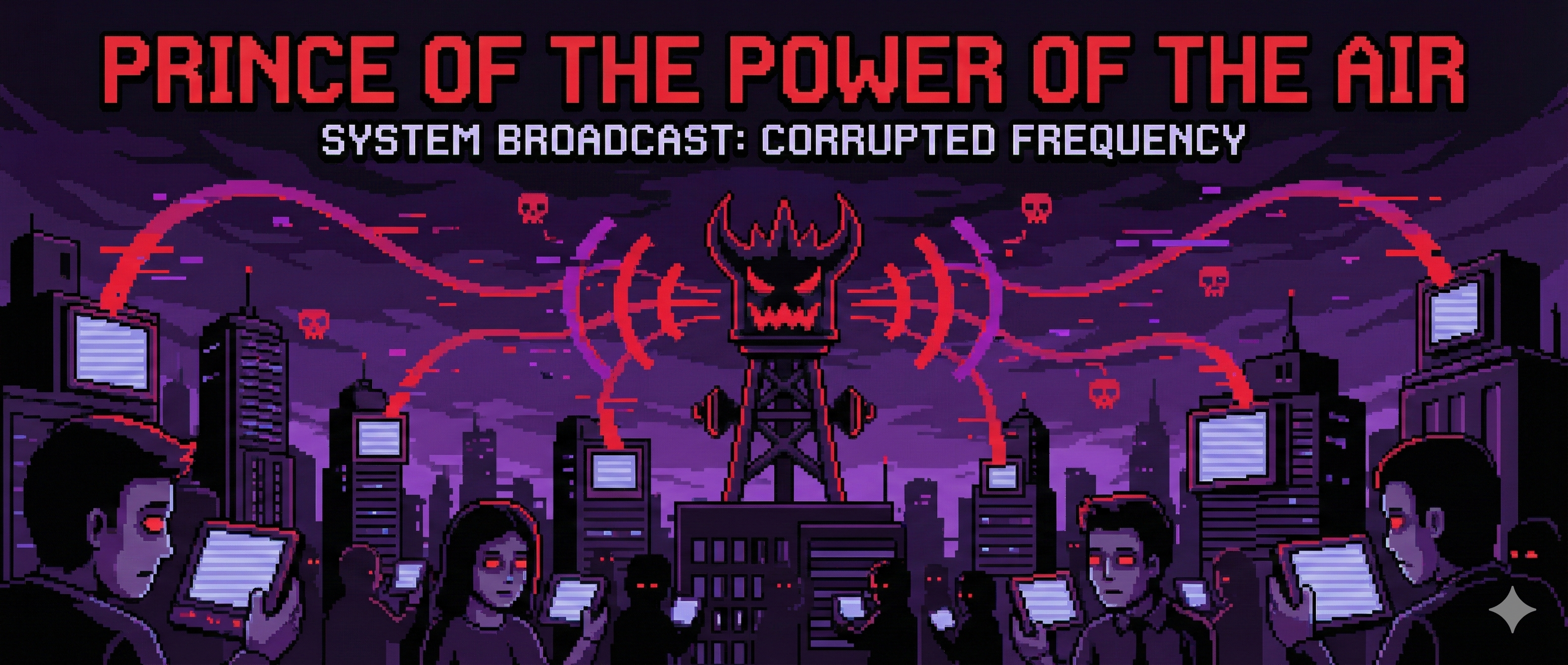The Prince of the Power of the Air
System Broadcast: Analyzing the Corrupted Frequency of the Age
SYSTEM CONTEXT: The spiritual battle is not merely a physical confrontation but a continuous, pervasive broadcast of ideas and influences designed to shape human consciousness against the knowledge of God.
// PROTOCOL: THE BROADCAST FREQUENCY
"And you were dead in the trespasses and sins in which you once walked, following the course of this world, following the prince of the power of the air, the spirit that is now at work in the sons of disobedience..."
Ephesians 2:1-2 (ESV)
BROADCAST ANALYSIS:
Satan is identified as the "prince of the power of the air," indicating a domain of influence that is ubiquitous and invisible, like a radio signal. This "air" is the cultural and intellectual atmosphere that surrounds us, a constant transmission of values and ideas that are hostile to God.
// SYSTEM THREAT: THE TRANSMITTER OF LIES
"You are of your father the devil, and your will is to do your father's desires. He was a murderer from the beginning, and does not stand in the truth, because there is no truth in him. When he lies, he speaks out of his own character, for he is a liar and the father of lies."
John 8:44 (ESV)
SOURCE IDENTIFICATION:
The signal is not neutral. Its source is the "father of lies." The broadcast is a systematic dissemination of falsehoods designed to deceive and destroy. It is a character-driven transmission of anti-truth.
// SYSTEM ALERT: THE MEDIUM IS THE MESSAGE
"And no wonder, for even Satan disguises himself as an angel of light."
2 Corinthians 11:14 (ESV)
INFILTRATION WARNING:
The broadcast does not always appear evil. It often masquerades as culture, entertainment, philosophy, or even "enlightenment." The medium—be it social media, news, or academia—can become a delivery system for the corrupted signal, making the lie palatable and pervasive.
// DIRECTIVE: THE COUNTERMEASURE
"Put on the whole armor of God, that you may be able to stand against the schemes of the devil. For we do not wrestle against flesh and blood, but against the rulers, against the authorities, against the cosmic powers over this present darkness, against the spiritual forces of evil in the heavenly places."
Ephesians 6:11-12 (ESV)
DEFENSIVE PROTOCOL:
The only effective countermeasure against a spiritual broadcast is spiritual armor. We must recognize the nature of the conflict and actively "tune out" the corrupted frequency by tuning into the Truth of God's Word and Spirit. Passive reception is not an option; active defense is required.
// SYSTEM SUMMARY
FINAL STATUS:
The "prince of the power of the air" is broadcasting a continuous stream of deception. To survive and thrive as a believer is to constantly filter this signal through the lens of Scripture, recognizing the source and refusing to be shaped by its influence. The battle for the mind is won by tuning to a higher frequency.
